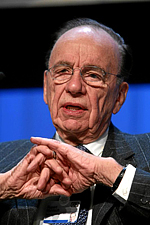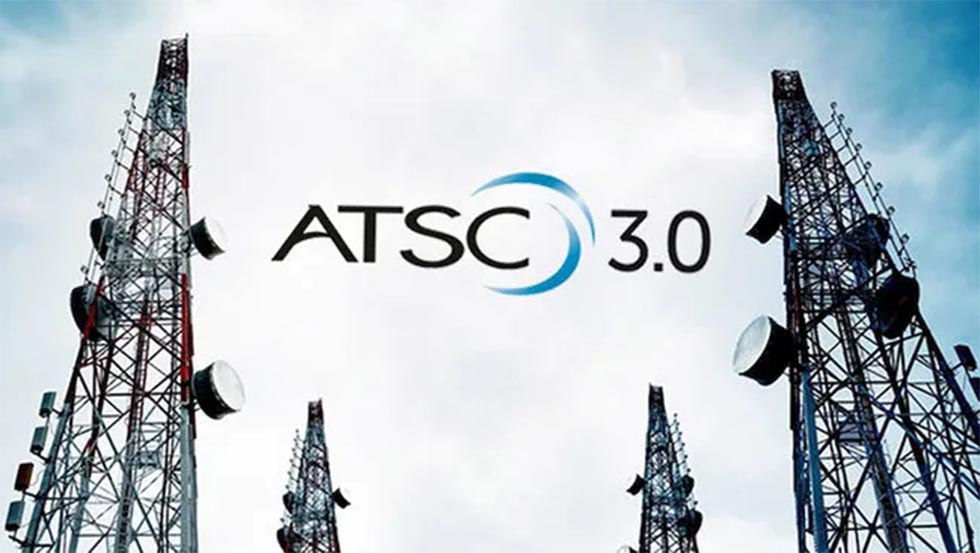An Industry Wish List
This month marks not only a changeover between a Republican and a Democratic administration, but—along with a solidification of Democratic power in Congress and an economic crisis demanding government action—it's likely to be one of the more radical changes ever from right to left in American politics. Whether you think that's good or bad, this is certainly a time when a number of regulations and laws concerning broadcasting are likely to be changing.
Here's my own wish list for regulatory change that would actually work to help our industry out of its own significant portion of the world economic slump.
1) Copyright Reform. The Sonny Bono Copyright Act of 1998 (SBCA) and the Digital Millennium Copyright Act (DMCA), passed soon after, have now had demonstrably lousy consequences. Copyright protection now lasts 95 years after publication for corporate works. What's wrong with long copyright protection for intellectual property? Doesn't it help American content producers, such as the movie companies, and thus keep money flowing into content industries?
That's certainly the big copyright holders' argument. In fact, the data shows the reverse is true. Since most content piracy that truly affects profits is of new material, copyright lasting longer than a very few years simply brings no additional law to bear where it might count.
The term of U.S. patent protection is 20 years. There is no good argument for copyright term being any different.
Another, more technical problem with DMCA is that it forbids, "any technology, product, service, device, component, or part thereof… primarily designed or produced for the purpose of circumventing protection afforded by a technological measure that effectively protects a right of a copyright owner."
Sounds OK, but this also criminalizes the tools that experts use to test and create better encryption. Since DMCA passed, this portion of the act has been winked at to allow such research to continue. People working to improve content security should not technically be guilty of violating laws that some whimsical authority may someday decide to enforce. This will tend only to ensure that such work is done in other countries.
CRIKEY!
2) Foreign ownership. Media ownership rules are pretty loose these days, but foreigners still can't control U.S. broadcasting companies. Rupert Murdoch made a mockery of the rule years ago by becoming a U.S. citizen while News Corp. remains based in Australia. The U.S. should negotiate bilateral deals with any and all countries that share our traditions regarding free speech to allow our citizens and theirs to own controlling shares in broadcasting stations in either country.

News Corp. chief Rupert Murdoch. Photo Courtesy of The World Economic Forum 3) Network neutrality. Now let's look at net neutrality again. If a service such as Sezmi takes off, and Vladimir Putin or Rupert Murdoch controls the TV station carrying a news service critical of His Nibs, one might worry a bit more about bandwidth throttling. As I noted in refusing to worry about net neutrality in a column back in 2007, it is untenable over the long term for cable operators or telecoms to throttle bandwidth for services they deem competitive with others in which they may own some interest.
Broadband's attraction depends on the availability of the services the nasty cable operator might slow down, and cable operators make lots of money on broadband. Yet Comcast was caught a few months ago trying exactly this ploy. The awful publicity caused them to stop. So I was proved right, in that case, but I now think I was wrong overall.
The reason: melamine in Chinese milk and junk mortgages packaged as AAA bonds have done some damage lately, even if, over the long term, we can say with confidence that the sellers of these lousy products will logically want to change their ways.
Lack of net neutrality may not change much over the long term, but in the short term may cause worthy program services to sleep with the melamine-laced fishes. The FCC should be empowered to levy heavy fines on bandwidth providers, whether cable, telco, or, in the new digital service world, potentially broadcasters, who discriminate among similar kinds of net traffic.
4) Faster broadband. What we call broadband Internet service in the U.S. is usually only about 1 Mbps, maybe two or three. In France, South Korea, Japan, etc., etc., broadband runs at 20 to 50 Mbps, and costs less than our skimpier version, too. More bandwidth means lots more video services, and a lifeline of innovation to our industry in particular. Just a few forward-thinking Internet service providers—especially Verizon, with its FiOS service—are building out big broadband in the United States. How do we encourage others to do so? There are many possible ways.
A tax break for ISPs for every consumer home reached by Internet service greater than 20 Mbps, made revenue neutral by tax penalties for slower service, strikes me as reasonable. Targets can be easier in rural areas and in urban core areas that are more expensive to wire, but we do need targets, and probably both carrots and sticks.
EYES, PLEASE
5) Privacy protection. As the video business moves increasingly to the Internet, this becomes our issue. We need to advance way beyond the present reality in which anyone can collect and sell information about individuals without their knowledge or consent. We need a law mandating that individuals control who gets, holds, or distributes information about them. There should be real criminal and civil penalties for failure to meet the requirements.
6) White space. Free use of white space use by nonbroadcasters is a farce and ought to be forbidden. It doesn't work, and it degrades public use of broadcast signals. In my neighborhood, pirate radio stations make two of my favorite FM stations unlistenable on weekends. The general public should not have to share such annoyance when watching TV. If anybody can ever demonstrate a working white-space application that doesn't degrade adjacent licensed signals, the issue can be revisited.
7) Convergence. There's coming to be less and less difference between cable operators and phone companies, and if efforts such as Sezmi work, some broadcasters. The FCC should hasten this convergence.
It can't be done overnight, as there are very real differences in infrastructure assets and market power in each locality. But it is crazy that telcos should pay into a universal service fund and voice-over-IP operators shouldn't. Likewise with TV content owners and stations having to deal with one set of restrictions for cable and another for telco.
Another example—telcos that are in the business of delivering TV signals to consumers should be subject to must-carry for local broadcasters, on the same basis as cable operators.
8) Cable network bundling. It should be outlawed. A great deal of the reason that consumer cable rates keep spiraling upward is that a consumer must pay some $4 a month for all of ESPN's channels, though she may never watch ESPN… or, if only occasionally watching one of ESPN's channels, must buy all. The network owners should be forbidden to bundle channels for sale to operators, and operators should be forbidden to do so to consumers.
Many in our industry will disagree with me on this. They say cable will cost more overall, and many marginally attractive channels would go bust if everybody could pick the few channels they want to watch. As to cable costing more, consumer cable rates are clearly constrained by what the market will bear; given economic pressure in a recession and competition from satellite, telco, the Web, and soon from multichannel digital broadcasting, they should only go down.
And anyway, by increasingly making TV shows available on the Web, content owners are already undermining their own arguments that bundling is needed. The greatest effect of unbundling will be a hastening of the day when cable operators are basically operators of undifferentiated broadband pipes, and consumers choose their shows one by one.
Neal Weinstock is chairman/CEO of Kerner New York, a firm that does 3D over IPTV in out-of-home networks.
The professional video industry's #1 source for news, trends and product and tech information. Sign up below.
